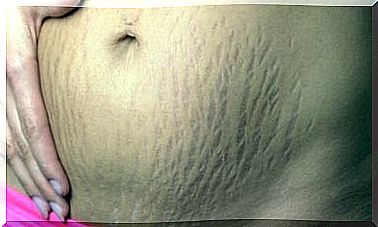My Son Is Always Hoarse: What To Do?

All children become hoarse and, after screaming a lot, they can even lose their voice. Having affected vocal cords is usually normal when it’s an occasional thing. However, some mothers ask themselves: “My child is always hoarse: what can I do?”.
In fact, there are several reasons why a child can become hoarse. Laryngitis, allergies or even frequent screaming are just the beginning of a long list. However, if the problem recurs, it’s time to act.
What is hoarseness?
The fact of being hoarse refers to an alteration in the natural functioning of the voice. Basically, we are referring to a variation that occurs in the larynx of children. This often leads the child to excessive vocal effort.
Due to the alteration and this excessive effort, the child may experience hoarseness and loss of timbre and vocal power. When this occurs recurrently, it is important to verify the source of the problem.
When this condition lasts more than a week, it is considered a disorder of some importance. In these cases, the otolaryngologist is the specialist responsible for examining and treating the disease. Recurrent childhood hoarseness must be controlled.
in search of causes
While there are many factors that can cause this unpleasant situation, not all can cause it to become permanent or repetitive. Flu and other respiratory infections often cause occasional hoarseness.
Of course, there are other conditions that can lead to more prolonged dysphonia. It can all start with an allergic predisposition or be the symptom of a more serious illness. Therefore, we must keep a constant watch.
The idea is not to worry us, but to be able to provide children with timely medical care. The main thing is to understand when hoarseness or loss of voice is prolonged or severe.

My child is always hoarse: warning signs
Benign hoarseness usually lasts a few days or, at most, a week. However, if this state lasts for more than ten days, the correct thing is to look for a pediatrician. Hoarseness that lasts more than two weeks should be treated more rigorously.
If these types of conditions prevent food intake or breathing, the child should be taken to an emergency room. In the case of a child, this situation can be dangerous and lead to serious complications.
A prolonged aphonia can also be the announcement of a more serious illness. However, for this to happen, other symptoms must appear, such as coughing up blood.
Causes of Prolonged Dysphonia
- Allergies: Children with acute sinusitis and rhinitis may have recurrent vocal disturbances. In addition to the occasional administration of antibiotics, the child must be protected from the elements that cause allergies.
- Serious Illnesses: Unfortunately, there are children who can have cysts or even throat cancer. These diseases usually have a more complex and noticeable symptomatology.
- Misuse of the vocal cords: it sounds like a lie, but childhood hoarseness can be generated by a child’s self-induced overload. If she screams a lot and doesn’t know her limits, she can get hoarse often.
My child is always hoarse: what to do?
Once the cause has been identified, we can find the best solution to help our little one. If the source is allergies, it is better to check if they are environmental or food. The child must take the proper treatments and stay away from allergens.
On the other hand, if the problem is the child’s misuse of their voice, the correct thing is to start a speech therapy treatment. Then, from this approach, the child can be re-educated to better control their vocal efforts.

Importantly, hygiene plays a key role in the recurrence of throat infections. Therefore, we must pay attention to our children’s oral hygiene, as it will help to reduce the number of bacteria in children’s mouths.
Anyway, it is always good to consult a specialist doctor. The professional can explain the origin of the problem and even teach us exercises to be applied with the children. The goal is to learn to control your voice and thus take care of your vocal chords.








